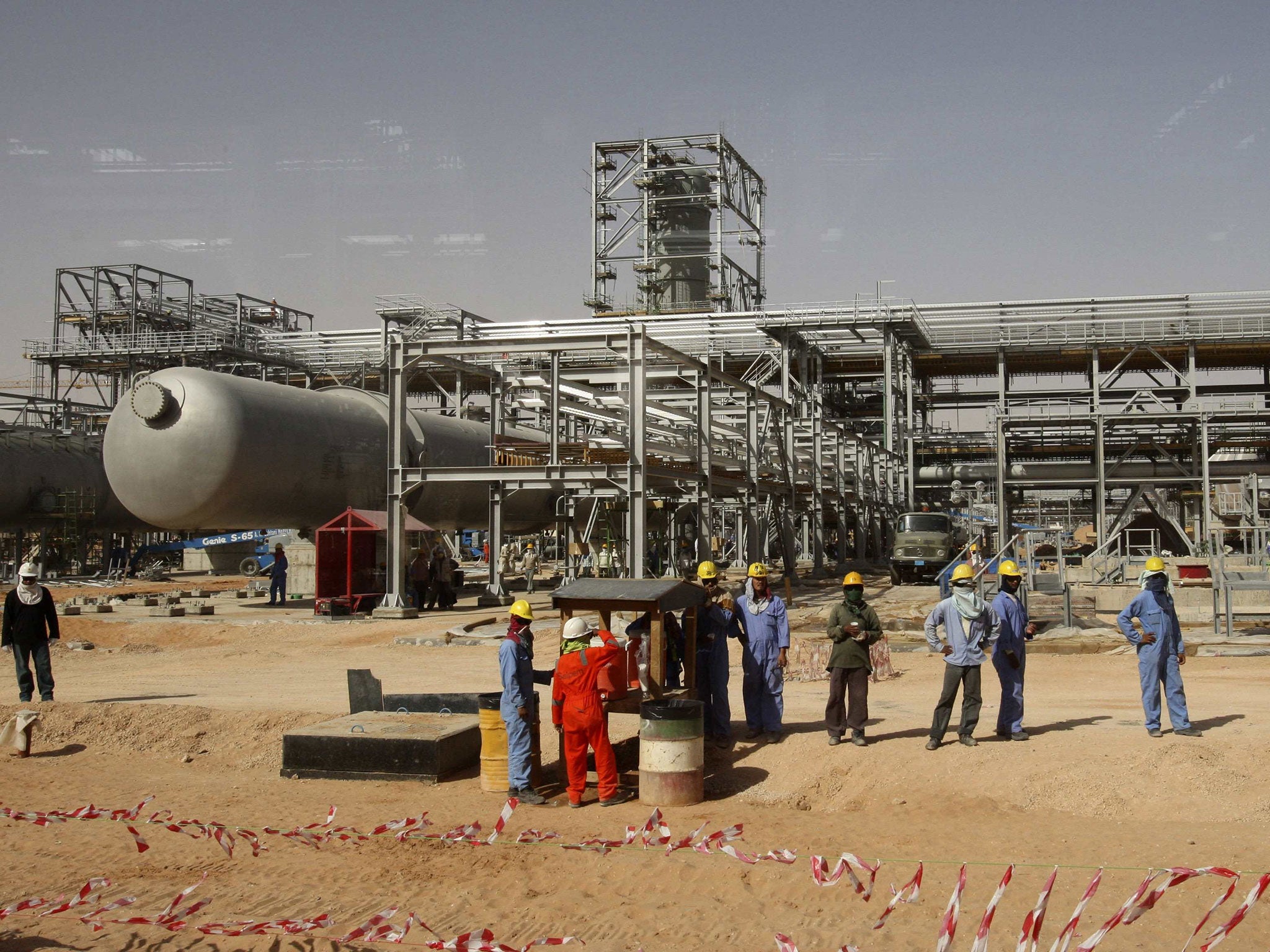Saudi Arabia says it 'will not cut oil production'
Kingdom says it will not reduce extraction despite agreement with Russia to 'freeze' production at January levels

Your support helps us to tell the story
From reproductive rights to climate change to Big Tech, The Independent is on the ground when the story is developing. Whether it's investigating the financials of Elon Musk's pro-Trump PAC or producing our latest documentary, 'The A Word', which shines a light on the American women fighting for reproductive rights, we know how important it is to parse out the facts from the messaging.
At such a critical moment in US history, we need reporters on the ground. Your donation allows us to keep sending journalists to speak to both sides of the story.
The Independent is trusted by Americans across the entire political spectrum. And unlike many other quality news outlets, we choose not to lock Americans out of our reporting and analysis with paywalls. We believe quality journalism should be available to everyone, paid for by those who can afford it.
Your support makes all the difference.The Saudi Arabian Foreign Minister has said the kingdom will not cut oil production, following talks in Doha earlier this week.
The development, reported by the AFP news agency, comes after an agreement with Russia on Tuesday in which they agreed to freeze output.
Foreign minister Adel al-Jubeir said: "If other producers want to limit or agree to a freeze in terms of additional production that may have an impact on the market but Saudi Arabia is not prepared to cut production," Adel al-Jubeir told AFP.
"The oil issue will be determined by supply and demand and by market forces. The kingdom of Saudi Arabia will protect its market share and we have said so".
Saudi Arabia and other OPEC producers have been hit hard by the dramatic fall in the world oil price following the introduction of newer less competitive players into the market such as the US and the lifting of economic sanctions against oil-rich Iran.
The oil price fall 70 per cent since summer 2014 - leading to Saudi Arabia and non-OPEC member Russia to agree on Tuesday to a freeze in production if other major producers did the same.
Venezuela, Qatar and Kuwwiat have also agreed to the planned freeze after talks in Doha to prevent the price falling further.
The price of Brent crude oil rose six per cent in the run up to the meeting but fell three per cent immediately after the announcement was made.
This is because although major producers have agreed to a freeze in production at January levels they will not reduce the level they are already producing.
Both Russia and Saudi Arabia are suffering from the fall in the price of oil.
The weakness of Russia's energy export market is damaging its economy and exchange rate which have already been hit by economic sanctions following the invasion of the Crimea.
Saudi Arabia - which depends on oil revenues to prop up its theocratic regime with generous benefits - has been forced to introduce sweeping reforms including hiking domestic fuel prices by 40 per cent and taxing cigarettes and sugary drinks.
Join our commenting forum
Join thought-provoking conversations, follow other Independent readers and see their replies
Comments